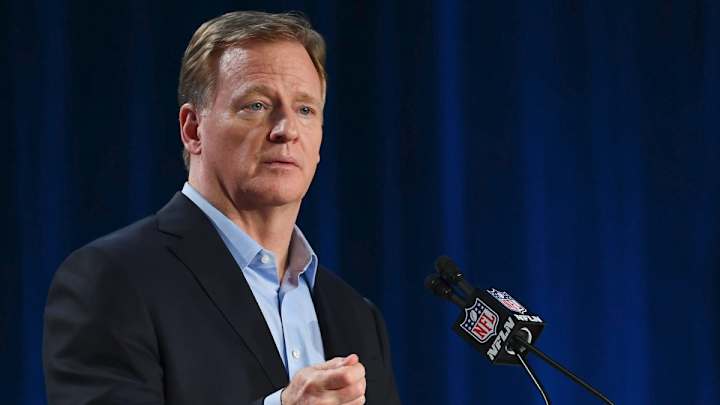The NFL's Diversity Measures Should Be Built with Input From People of Color Around the League

SI senior writer Michael Rosenberg shares some thoughts on the NFL's diversity initiatives; where they might fall short and what NFL leadership can do to further their goal of making the league more diverse.
Video Transcript:
Last week, the NFL floated a plan to improve its diversity in the general manager and head coaching ranks. Essentially, the leagues would reward teams that hire and retain people of color in leadership positions. By improving their draft position, they would move up in the third round, maybe even into the second round, depending on how they did. It was well-intentioned, but it was a really bad idea. First of all, it wouldn't work. The incentives were just not big enough. And second of all, it would stigmatize any person of color who achieved their dream. People would say they were token hires. They only got the job because of their race. It wouldn't be fair, but it would happen.
The NFL has already tabled that proposal. It was dead in the water, and now the question the NFL should ask itself today is why did it get to this point? Roger Goodell said in January that this was an urgent matter that had to be dealt with because what the league was doing was not working. How did the league get to May with a plan that didn't even have the support of the people it was supposed to benefit?
The answer is not sinister or deceitful or hateful. The answer is pretty simple. Roger Goodell has good intentions here, but the problem is that it's a league of control. Everything from Goodell's press conferences, to the "boos" at the virtual draft, feels choreographed. That often comes off as stilted and awkward, even when the intentions are good as they are in this case. The solution to the minority coaching hire situation is complicated. Nobody has easy answers, but it has to start with a candid, open, honest dialogue with the people who have the most at stake, African-American coaches. Ask them what the interview process is really like. Ask them why they think they're being passed over for jobs. Ask them what they would do to change things if they were in charge. You can't just take all of their answers and apply every single one of them. But that's the start of the conversation. And then you work with those coaches to form a plan that can help solve this problem.
This is not a quick fix. It's not an easy fix. But it does require the league getting the complete investment of the people who want to benefit from this and who would benefit from this. And whatever plan they come up with, it has to be better than the last one.